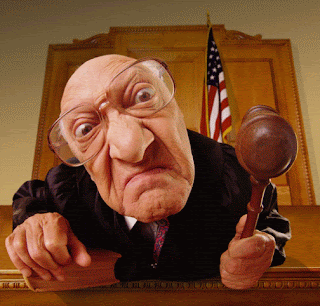Weekly Opinion Editorial
2016 PRESENTS
A CHALLENGE TO LAWMAKERS
by Steve Fair
2015 is almost in the books and it has
been an interesting year in politics.
The 2016 presidential election kicked off with no less than thirty seven
Republicans tossing their hat in the ring.
Only thirteen were considered serious candidates and now that field has
been winnowed down to ten. Eleven of the
major candidates spoke in May at the Cox Center in Oklahoma City at the
Southern Republican Leadership Conference.
The SRLC was the largest political event ever staged in Oklahoma. Over 2,000 attended and it put Oklahoma in
the worldwide political spotlight for 72 hours.
It allowed Oklahoma to have some impact in the GOP primary process.
The first votes to be cast to determine
the two major Parties nominee will be on Monday February 1st at the
Iowa caucus. Iowa’s delegate count is less than 1% of the delegates to the GOP
national convention, but since it is the first in the country, it is considered
to be very important. The race is
reportedly very close and history has shown the candidate with more ‘boots on
the ground’ than the competition will win. Huckabee, Santorum, and Howard Dean have all
won Iowa. They are examples of
candidates with little money, but passionate volunteers who get their vote out.
The presidential race is, and will
continue to be, fun to watch, but Oklahomans need to pay attention to something
closer to home.
Last week, the Oklahoma State Board of
Equalization, a seven member board composed of six statewide elected officials
and the Secretary of Agriculture, who is appointed by the Governor met. Their job, according to the state
constitution, is to review state revenue figures and ‘certify’ the amount of
money the Oklahoma state legislature has to appropriate in the upcoming fiscal
year, which begins in July. That number
is 901 million dollars, 13% less than last year. The board also heard the amount they
certified last year is going to fall short about 2-4%, based on current revenue
trends. That will mean Oklahoma common
education (schools), agencies, and transportation will face budget shortfalls
in the next six months. Times are tough
in Oklahoma government. If these numbers
were presented to a corporate, publically traded board, massive layoffs would
ensue and every departmental head would be charged to justify every dime they were
asking to spend. Until the ‘income’ side
of the ledger showed some improvement, management would impose a hiring and
wage freeze, but that is not how government- at any level- works. Government doesn’t do layoffs or wage
freezes.
In a 2011 USA Today analysis, it was found
that government fires only about .55% of workers annually for poor performance,
compared to 3% in the private sector. Most
of those fired by the government were entry level, where in the private sector
it was evenly distributed throughout all levels. Ronald Reagan said.: “the closest thing to
eternity life in this world is a government job.”
The basic problem is when government faces
a shortfall, they try to fix only one side of the ledger- the revenue
side. When the budget is down, even
conservative Republicans begin to talk about eliminating tax credits and
exemptions like uncollected tax money belongs to the government and not to the
people who generated it. Make no
mistake, some tax credits should be reviewed, because of fraud and abuse, but
conservatives need to be careful in proclaiming that uncollected tax money is the
governments. It isn’t. It belongs to the one who earned it.
Another issue the Oklahoma legislature
faces is the amount of actual truly ‘appropriated’ money they get to control. With all the ‘earmarks,’ (money off the top),
the legislature will get to actually haggle over less than half the $901
million. Through the years past
legislatures have made long-term revenue commitments to causes that bind future
legislatures. Legislative leaders and
the Governor would like to see that changed
“A
lot of our agencies have lost anywhere from one-fourth to one-third of their
budgets, but those off-the-top entities haven't," Speaker of the House
Jeff Hickman, R-Fairview said. "They
get their money off the top, paid in full, and they have never felt any of this
pain like a lot of our agencies." Hickman makes a valid point, but
until the legislature is willing to work on the spending side of the ledger,
this is merely wealth redistribution.
Trump’s appeal to many voters is his
pledge to run government like a business. The fact is, government can’t be run
like a business because government is an entity far different than a business, but
fundamental principles of common sense that successful businesses use would be
a great improvement over our current government model of tax and spend.




